Culinary Tour of Bali's Lesser-Known Villages – Farm-Fresh Dining Off the Beaten Path
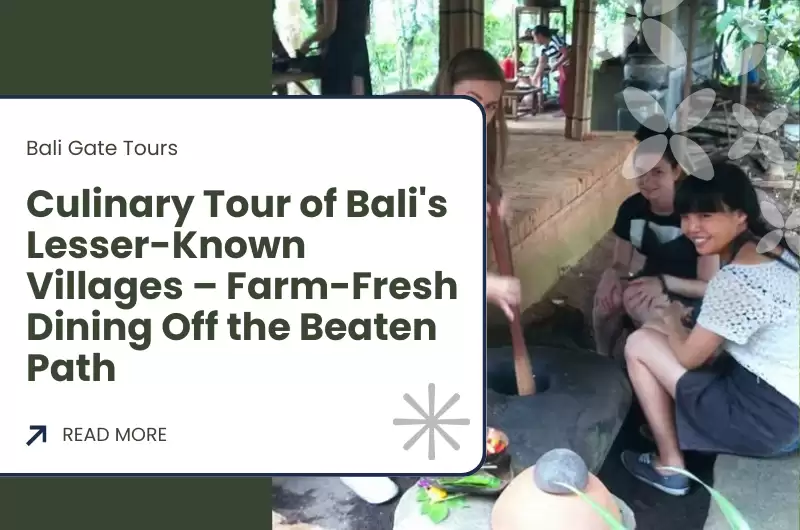
Bali is often celebrated for its pristine beaches, iconic rice terraces, and vibrant cities, but there's another side to the island that is equally as captivating—the culinary traditions of Bali’s lesser-known villages. While the island’s popular tourist areas offer a vast array of dining options, the hidden villages of Bali are where you can truly experience the island’s authentic, farm-to-table dining culture.
In Bali’s remote villages, away from the hustle and bustle of Seminyak or Ubud, the food is often prepared using fresh, locally sourced ingredients from the surrounding farms. This gives visitors the chance to taste authentic Balinese dishes, prepared with love and care by local chefs and families. Bali’s lesser-known villages provide a window into the island’s rich agricultural history, where traditional cooking methods are still celebrated, and meals are made with ingredients that are as fresh as they come.
This guide will take you on a culinary tour of Bali’s lesser-known villages, where you can enjoy farm-fresh dining, discover hidden food gems, and indulge in local delicacies that you won’t find anywhere else. From secluded organic farms to family-run eateries tucked in rural corners, these villages are where you’ll experience the heart and soul of Bali’s food scene.
Discovering Bali’s Agricultural Heart – The Villages Behind the Flavors
Bali’s rural villages are not just picturesque; they are the beating heart of the island’s food culture. Here, the Balinese farming system is still deeply rooted in daily life. Traditional subak irrigation systems maintain the fertility of rice fields, and local farmers practice sustainable agricultural methods, providing fresh ingredients to the surrounding communities. As a result, the local cuisine has a deep connection to the land, and you can taste the difference when the produce is freshly harvested and prepared with traditional techniques.
One of the most exciting aspects of these hidden villages is the opportunity to visit local organic farms and villages, where you can enjoy home-cooked meals made from freshly picked produce. These areas also allow for an authentic farm-to-table dining experience, where the ingredients go from field to plate in a matter of hours.
Many of Bali’s hidden villages offer experiences that are perfect for food lovers looking to explore the roots of Balinese cuisine. You can participate in cooking classes, enjoy farm tours, and learn about how organic farming works in Bali’s rural areas.
1. Sidemen Village – Traditional Dining with a View of Mount Agung
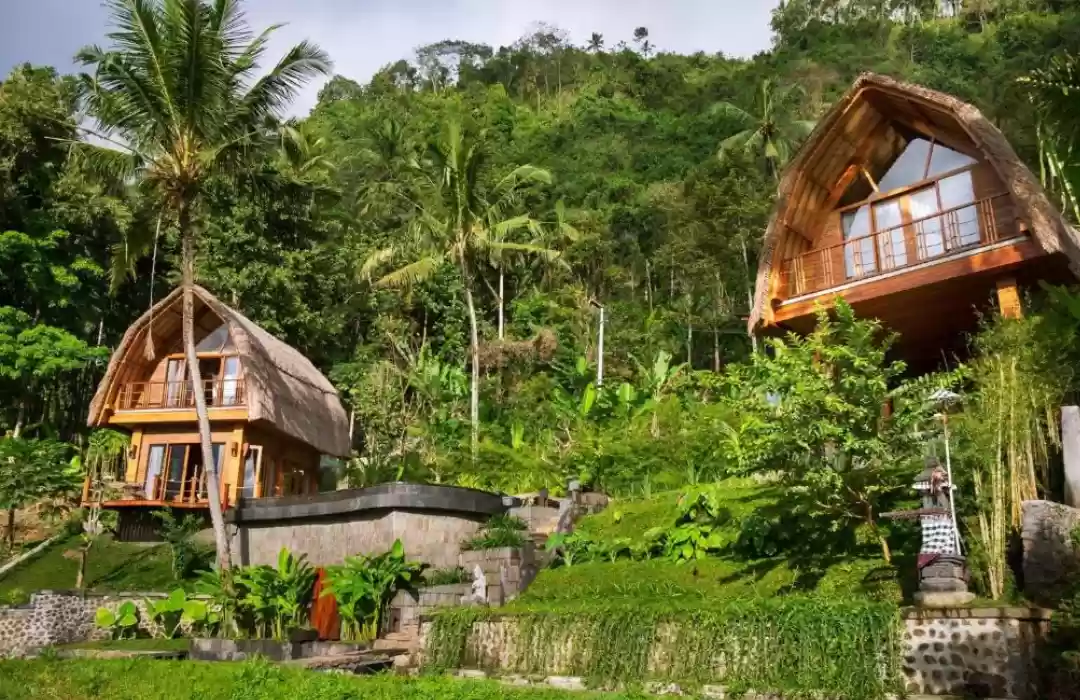
Located in the heart of Bali’s east, Sidemen Village is one of the island's best-kept secrets. Surrounded by lush rice terraces, the village is tucked away beneath the towering Mount Agung, Bali’s most sacred mountain. Sidemen offers an incredibly peaceful and scenic escape, and it’s the perfect destination for those seeking to experience authentic Balinese cuisine.
In Sidemen, much of the local food comes directly from the surrounding fields, from organic rice to tropical fruits like bananas, papayas, and coconuts. This is a place where you can enjoy freshly prepared Balinese dishes that incorporate the finest local ingredients. Many small eateries in Sidemen offer traditional Balinese meals such as Babi Guling (suckling pig) and Ayam Betutu (slow-cooked chicken), both made with spices and herbs grown locally.
One of the highlights of Sidemen is the opportunity to visit local farms and participate in a cooking class where you can learn to make these dishes from scratch, using the produce you’ve just seen harvested. Whether you’re dining at a local warung (small family-run restaurant) or learning to cook alongside villagers, Sidemen offers an authentic and immersive food experience.
Local Tip: Don’t miss the opportunity to visit Sidemen’s rice terraces. The views of the lush, green fields stretching towards Mount Agung are absolutely breathtaking and make for the perfect backdrop for your culinary adventure.
2. Tenganan Village – A Window into Bali’s Ancient Culinary Traditions
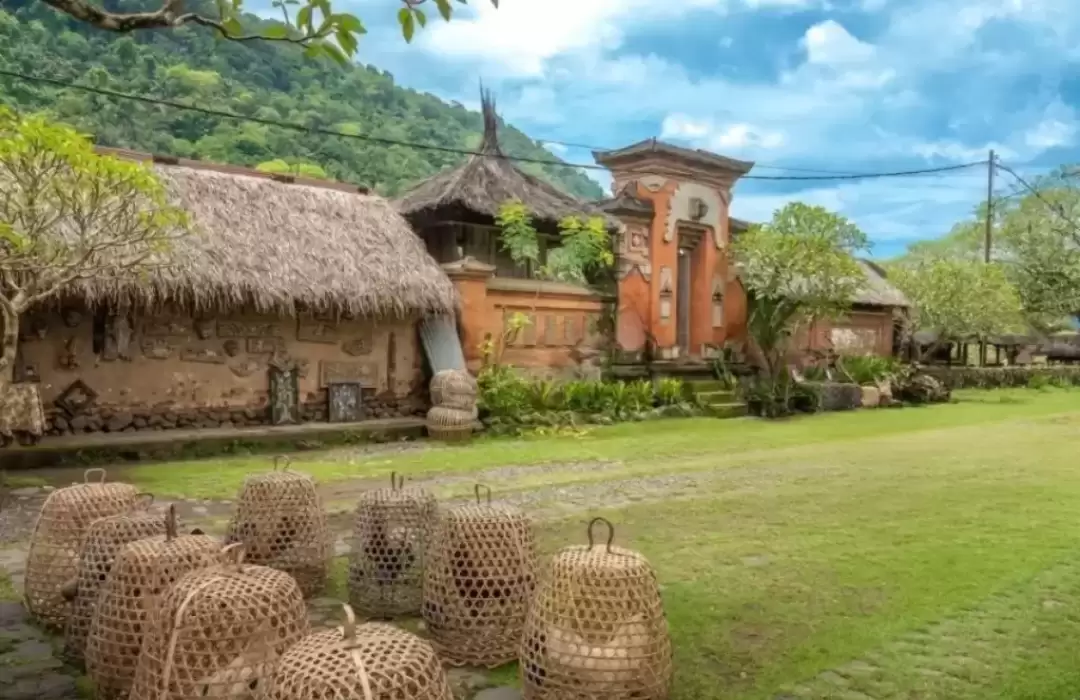
Located in Karangasem on the eastern side of Bali, Tenganan Village is one of the oldest Bali Aga villages, and its food culture is just as ancient as its traditions. This village is famous for its unique double ikat textiles, but its food culture is equally fascinating. Tenganan’s traditional cuisine uses ingredients grown in the village’s surrounding gardens and forests, providing visitors with a true taste of Bali’s ancient agricultural practices.
In Tenganan, you can enjoy Balinese dishes that have been passed down through generations. One of the standout dishes is Babi Guling, a ceremonial dish made with roast pig, which is often prepared for special occasions. Another dish you must try is Sate Lilit, a minced meat satay wrapped around sticks of lemongrass. The spices used in these dishes come from the village’s gardens, making the flavors incredibly fresh and aromatic.
Tenganan offers a unique culinary experience where you can see how the island’s traditional food has evolved over centuries. Many villagers also offer cooking classes where you can learn to make Balinese specialties using locally sourced ingredients.
Local Tip: Explore the village on foot, as it is home to beautiful traditional homes, temples, and a laid-back atmosphere that feels miles away from the tourist-heavy areas of Bali.
3. Munduk Village – A Taste of Organic Produce and Coffee
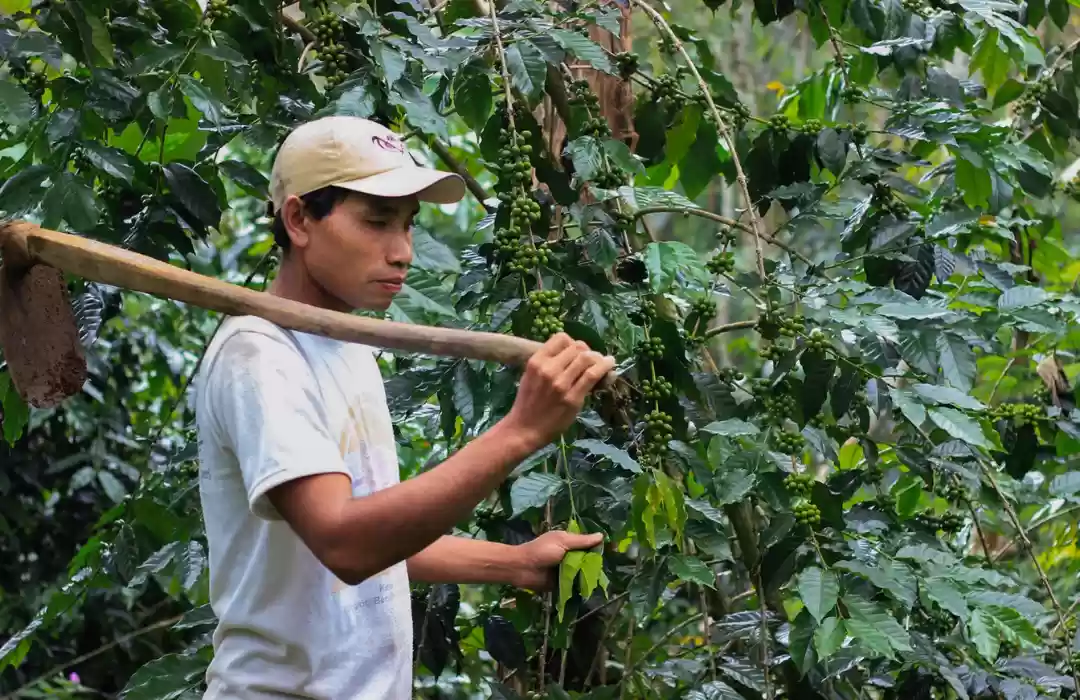
In Munduk, a quiet village in the northwest highlands of Bali, you’ll find an entirely different side of Bali’s food culture. Munduk is famous for its cooler climate, which makes it an ideal place for growing a wide range of organic produce, including coffee. The region is home to some of Bali’s best coffee plantations, where you can learn about the process of growing and harvesting beans while enjoying freshly brewed coffee made from local beans.
Dining in Munduk offers a mix of traditional Balinese food and dishes made from organic vegetables, fruits, and herbs grown in the region’s fertile soil. You’ll find a variety of small restaurants and eco-resorts in the area that serve fresh, local meals, from vegetable stir-fries to more hearty options like Nasi Campur and Babi Guling.
Many of the eco-villages and coffee farms in the area offer guided tours where you can witness the coffee-making process firsthand and learn how this important crop is cultivated using sustainable methods. These tours also often include a chance to taste local coffee and indulge in delicious meals made from fresh, organic ingredients.
Local Tip: If you love coffee, don’t miss a visit to one of the coffee plantations in Munduk, where you can sample locally grown beans while enjoying breathtaking views of the surrounding mountains.
4. Amed – Bali’s Coastal Village for Seafood Lovers

While Amed is best known for its snorkeling and diving spots, it is also home to a vibrant food culture that revolves around fresh seafood. Located on the northeastern coast of Bali, Amed is a peaceful fishing village where you can enjoy some of the freshest seafood you’ll ever taste.
Many of the restaurants in Amed offer catch-of-the-day seafood, often grilled or prepared in traditional Balinese style with spices and herbs grown locally. Grilled fish, squid, and shrimp are common staples, and they’re often paired with fresh vegetables and rice. Dining in Amed is not just about the food; it’s about the experience of eating freshly caught seafood while overlooking the crystal-clear waters of the Java Sea.
Amed is a great place to experience a seaside culinary adventure, where you can indulge in delicious meals, enjoy the laid-back atmosphere, and discover Bali’s traditional fishing culture.
Local Tip: Many of the beachfront warungs (small eateries) in Amed offer the freshest seafood in a casual, relaxed setting. Be sure to sample a seafood platter to get a taste of the village's best offerings.
5. Sidemen – Organic Farms and Traditional Balinese Cuisine
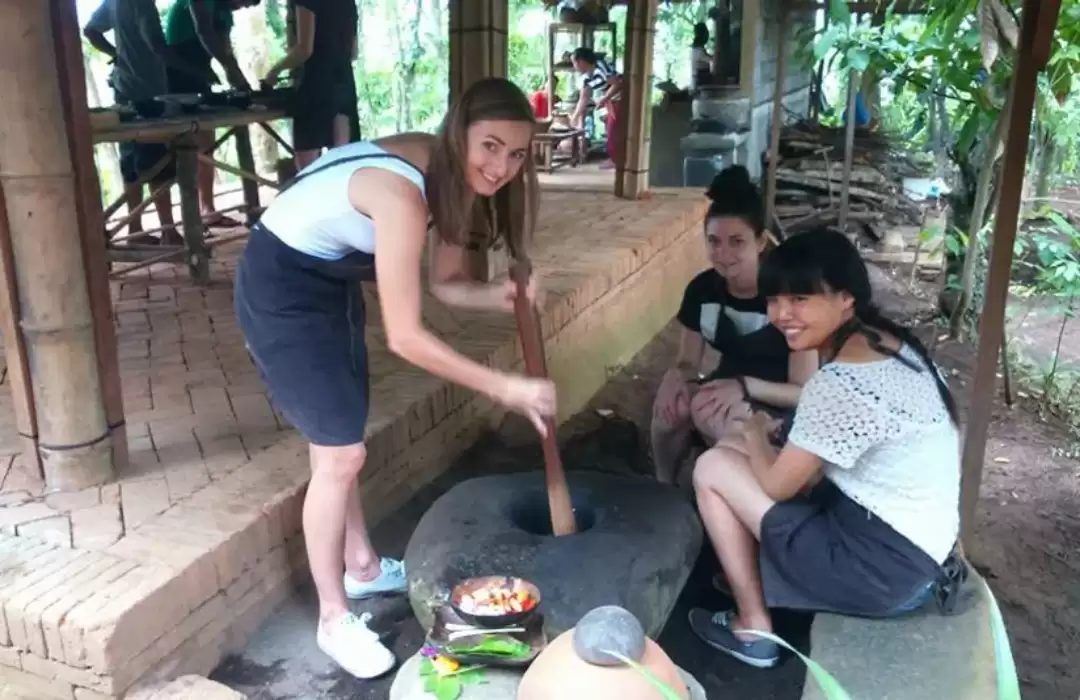
Returning to the Sidemen Village for another round, this area is not only famous for its rice terraces but also for its commitment to organic farming. You’ll find an abundance of organic vegetables, tropical fruits, and spices that are used in local dishes, giving you a true farm-to-table experience. Sidemen’s traditional restaurants serve hearty Balinese meals, such as Ayam Betutu, a slow-cooked chicken dish with turmeric, spices, and fresh herbs, along with Nasi Campur (mixed rice with various sides).
Local farmers in Sidemen also offer tours of their organic farms, where you can learn about sustainable farming practices and how the region’s soil produces such high-quality produce. This gives you a deeper connection to the food you’re enjoying and a greater appreciation for Bali’s agricultural traditions.
Local Tip: Visit one of Sidemen’s eco-lodges for an overnight stay to fully immerse yourself in the village’s agricultural life, where you’ll wake up to the sounds of nature and a breakfast made with fresh ingredients from the farm.
A Culinary Journey Through Bali’s Hidden Villages
Bali’s lesser-known villages are a treasure trove of authentic Balinese food and farm-fresh dining experiences. From the peaceful shores of Amed to the organic farms of Sidemen, these hidden gems offer more than just a meal—they offer an experience of Bali’s culture, history, and agricultural heritage. Dining here means tasting food that is both fresh and deeply connected to the land.
For food lovers, a culinary tour through Bali’s hidden villages will not only satisfy your taste buds but also provide a deeper understanding of the island’s agricultural traditions and farm-to-table culture. As more travelers seek sustainable tourism and authentic food experiences, these villages offer a unique opportunity to experience Bali in a way that’s both enriching and meaningful.
So, the next time you're in Bali, make sure to venture beyond the well-trodden tourist paths and discover the hidden culinary treasures of Bali's lesser-known villages. You’ll leave with not only a full stomach but also a greater appreciation for the island's traditions and natural beauty.










